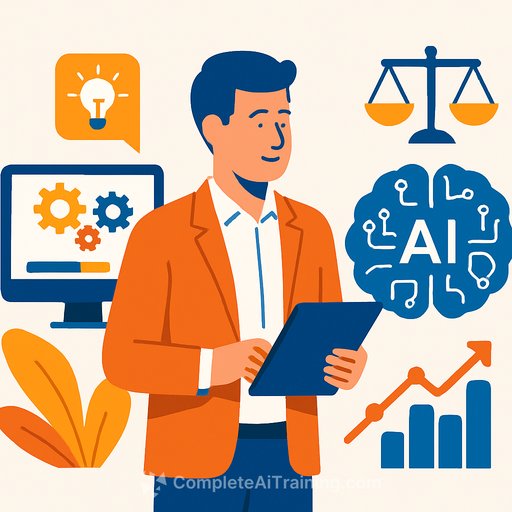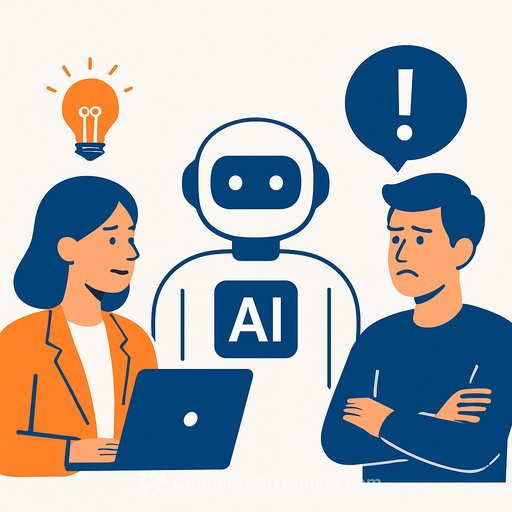The Evolving Role of the Chief Information Officer
The role of the Chief Information Officer (CIO) is shifting dramatically as artificial intelligence advances and technology becomes deeply embedded in business strategy. By 2028, CIOs will move beyond traditional IT management to become key drivers of enterprise innovation. Their responsibilities will blend technical skill with strategic insight, influencing revenue growth and organizational design.
AI is already changing what’s expected from CIOs. They are no longer just managing infrastructure or software updates. Instead, they lead AI-powered projects that affect customer experience and operational workflows. With increasing concerns about data privacy and ethical AI use, CIOs will need to handle regulatory challenges while promoting a culture open to change.
The AI Inflection Point and Strategic Elevation
Recent reports highlight this shift clearly. By 2028, the CIO role will reach a critical turning point due to AI’s impact, expanding their strategic responsibilities and opening new career paths for adaptable leaders. Tech executives are increasingly recognized as essential partners in business transformation.
There is also a growing trend of merging CIO and Chief Operating Officer (COO) roles. Many organizations may adopt hybrid leadership models where the CIO oversees technology along with daily operations and cultural change. This creates a more integrated approach to running the business.
From Operations to Revenue Drivers
The evolution of the CIO role has roots in disruptions like cloud computing and the pandemic, which pushed CIOs toward a leadership position with a strategic focus. By 2028, CIOs will be responsible for designing ethical technology frameworks, driving innovation, and contributing directly to revenue growth. This includes developing AI platforms for personalized customer engagement and predictive analytics.
Besides technology, CIOs are expanding their priorities to include workforce development and sustainability. Surveys reveal that CIOs are investing more in employee skills and eco-friendly tech practices. This broadening scope requires a mix of business insight, ethical oversight, and collaboration across departments.
Navigating Vendor Consolidation and AI Adoption
Vendor consolidation is becoming a key focus for CIOs as they aim to reduce costs and improve AI integration. Streamlining partnerships and adopting unified platforms will be essential for scalable operations by 2028. However, this shift also brings challenges.
AI adoption will alter the workforce significantly. It is estimated that AI could enhance 25% of roles while automating others, making reskilling a priority. CIOs will need to lead these efforts effectively while balancing technology upgrades with human-centered strategies.
Modernizing data infrastructure and redefining work models remain top priorities, highlighting the CIO’s role in balancing tech capabilities with organizational needs.
Ethical Leadership and Organizational Transformation
Ethical considerations will be central to the CIO’s responsibilities by 2028. Leaders must ensure responsible AI use, addressing issues like bias and aligning technology with corporate values. This ethical leadership will be a key factor in career growth and organizational success.
Addressing talent shortages and extracting value from generative AI are critical challenges. Successful CIOs will go beyond managing technology stacks to orchestrating broad organizational change, keeping their companies competitive in an AI-driven environment.
Preparing for the Blended Executive Future
More CIOs are expected to move into CEO roles as their understanding of digital transformation becomes an asset at the highest level of leadership. The combination of CIO and COO functions may redefine executive structures, making technology leadership synonymous with overall business success.
By 2028, CIOs will be multifaceted leaders who integrate AI ethics, drive new revenue streams, and lead cultural shifts. This evolution requires CIOs today to adapt proactively and expand their skill sets to meet future demands.
For executives seeking to deepen their AI knowledge and prepare for these changes, exploring advanced AI courses and certifications can be a practical step. Resources like Complete AI Training offer relevant programs tailored for business leaders ready to embrace this future.
Your membership also unlocks:






